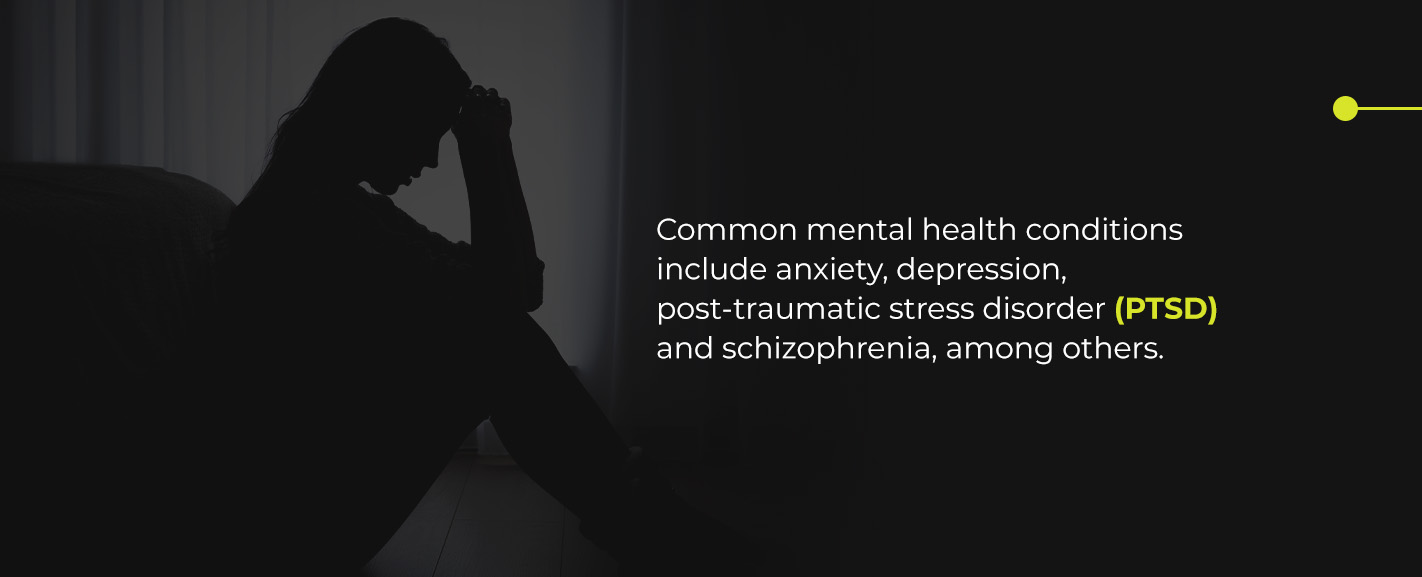- Nov 12
- Drug Addiction Treatment
The COVID-19 pandemic has affected various aspects of daily living and has brought difficult challenges that many are still adjusting to. The effects of COVID-19 can cause many negative feelings, including stress, fear, isolation and sadness. Countless people have experienced increased stress or reported negative mental health as a result of the challenging pandemic.
Safety precautions, such as quarantining or social distancing, are necessary to help limit the spread of COVID-19. Still, the process can cause people to feel lonely or worsen existing mental health conditions. As a result of these feelings of isolation, anxiety or depression, many people may seek to self-medicate. In addition, to ease negative emotions, individuals may misuse substances or alcohol to lessen negative thoughts.
- The Psychological Impact of COVID-19
- The Link Between Mental Health, COVID-19 Stress and Drug Use
- Using Drugs to Cope With Stress During COVID-19
- Substance Use
- Alcohol Use
- Seek Substance and Alcohol Misuse Treatments …
The Psychological Impact of COVID-19
There is a close relationship between COVID-19 and anxiety. Many people are experiencing a worsening of symptoms since the pandemic has begun. The coronavirus pandemic has been causing anxiety and depression rates to rise. COVID-19 and the resulting societal and economic changes have put additional strain on many people.
These new barriers have been difficult and have had an isolating effect on many as we continue to practice social distancing to help curb the spread of the virus. Common mental health conditions or feelings that COVID-19 may cause include:
- Anxiety: With COVID-19, many people may feel an increase in anxious thoughts and feelings. With the uncertainty of the future and concern for family and friends, people can experience severe or worsening anxiety.
- Depression: Depression is also a common mental health condition that many people may be feeling the effects of due to COVID-19. As the pandemic has disrupted routines and daily life, many people may feel extreme sadness or COVID-19-related depression.
- Isolation: While social distancing and quarantining are effective and necessary measures to ensure the public’s safety, they can have an isolating effect on many people. Without frequent socialization, many individuals may feel lonely or disconnected from friends, family and society as a whole.
- Hopelessness: During a difficult time in life, much like the COVID-19 pandemic, it is normal that some people may feel hopeless. It may be easy for people to focus on the difficult aspects of life and wonder when life will return to normal.
The Link Between Mental Health, COVID-19 Stress and Drug Use
Mental illness is a complex topic that has many potential causes. In most cases, it is a combination of someone’s personality mixed with experiences — such as a global pandemic — and lifestyle habits that may lead to the development of a mental illness. “Mental health disorders” is a term used to describe a wide range of mental health conditions.
Common mental health conditions include anxiety, depression, post-traumatic stress disorder (PTSD) and schizophrenia, among others. While moments of mental health concern or a negative mood can happen throughout life, mental illness involves negative thoughts, fear or symptoms that cause frequent stress and negatively impact a person’s ability to function.
For many, mental health during COVID-19 may worsen, or the effects of the pandemic may bring about mental illness conditions. Other risk factors can combine with the pandemic and isolation to worsen mental health concerns, with those factors including:
- Genetics: Certain mental illnesses may be hereditary, meaning they run in families and may be passed down from parents to children. If your family has a history of mental illness, you may be more likely to develop a mental health condition. Scientists believe many psychiatric disorders run in families, suggesting potential genetic roots.
- Substance misuse: Chronic misuse of some substances and drugs has been found to cause both short- and long-term changes in the brain, which can lead to some mental health issues. Many of those who have a dependency on drugs are often diagnosed with mental health conditions.
- Alcohol misuse: In addition to substance misuse, chronic alcohol misuse has also been shown to increase the potential for certain mental health conditions. Research has shown alcohol misuse can cause symptoms of depression, anxiety, psychosis and antisocial behavior.
- Physical or emotional abuse: Physical, emotional, sexual and verbal abuse can have lifelong impacts. Those who have gone through abuse or other trauma may be more likely to develop various mental health conditions. There are concerns that quarantining and staying home more often may increase instances of abuse.
- Childhood trauma: Emotional or physical childhood trauma can affect the long-term mental health of a person even if they are no longer actively experiencing the trauma. Children who experience traumatic events, like the coronavirus pandemic, may be more likely to develop anxiety, PTSD or other mental health conditions.
- Lack of socialization: Proper socialization is a necessary element to maintain a happy and healthy life. Poor social skills can lead to feelings of stress, loneliness and isolation, which can negatively impact physical and mental health.
Using Drugs to Cope With Stress During COVID-19
When presented with difficult emotions, it is normal to want those feelings to go away. As a result, many people may be self-medicating or using drugs to cope with stress and COVID-19. Unfortunately, depression, stress and drug use are often connected.
Many people may misuse a substance or alcohol in an attempt to improve their mental health during COVID-19. However, misusing any substance or alcohol is dangerous and often worsens stress and depression during COVID-19. While dealing with coronavirus stress may be difficult, misusing a substance is not a proper coping mechanism and can lead to dependency.
Substance Use
Stress during the coronavirus has resulted in many people seeking relief through misusing a substance. The Center for Disease Control has found that 13.3% of respondents in a study have started or increased substance use as a coping mechanism for stress or emotions related to COVID-19.
We know misusing a substance is dangerous for the severe emotional and medical complications it can cause. But research has found that those with a substance use disorder are also at an increased risk of severe illness and even death from COVID-19. Substance use can negatively affect your immune system and make it difficult for your body to fight off various diseases properly.
Alcohol Use
Many people have also increased alcohol usage in an attempt to cope with feelings of isolation or anxiety as they practice social distancing. Continuing research has found that alcohol consumption has increased during COVID-19 due to stress, alcohol availability and even boredom.
Alcohol consumption may be particularly worse for those who live in areas with stricter safety precautions, preventing them from seeing many people or partaking in communal hobbies. Young adults may also be struggling with social distancing and turning to alcohol misuse to try to process negative emotions.
Seek Substance and Alcohol Misuse Treatments With Gateway Foundation
Gateway Foundation provides innovative and effective addiction treatments to help those with a dependency on a drug or alcohol regain control of their life. In addition to substance use treatments and alcohol addiction treatments, Gateway Foundation also specializes in treating various mental health conditions. Our caring team offers mental health treatments for anxiety, depression, trauma and other issues, providing support for mental health concerns COVID-19 has brought about.
Often, mental health conditions are closely related to substance or alcohol misuse. With the relationship between mental health and substance use, we strive to address all aspects of a patient during the treatment process. With unique programs and counseling, we aim to create a safe place for those to heal from the difficulties of a substance or alcohol dependency, especially during the pandemic.
To learn more about our addiction treatments and professional rehab centers throughout Illinois, contact us online or call us at 877.381.6538.




